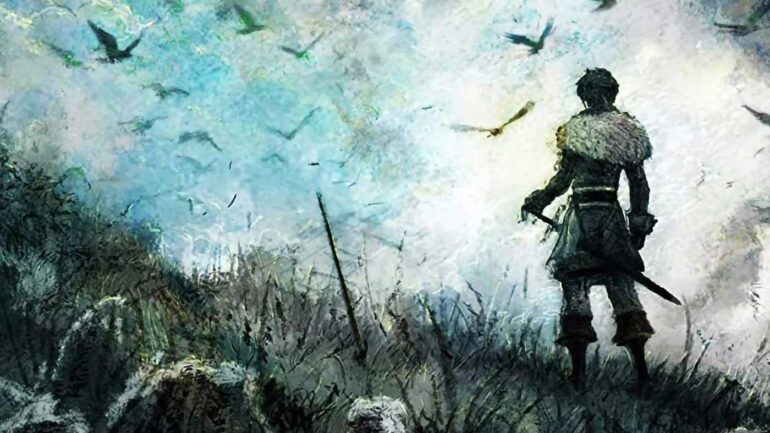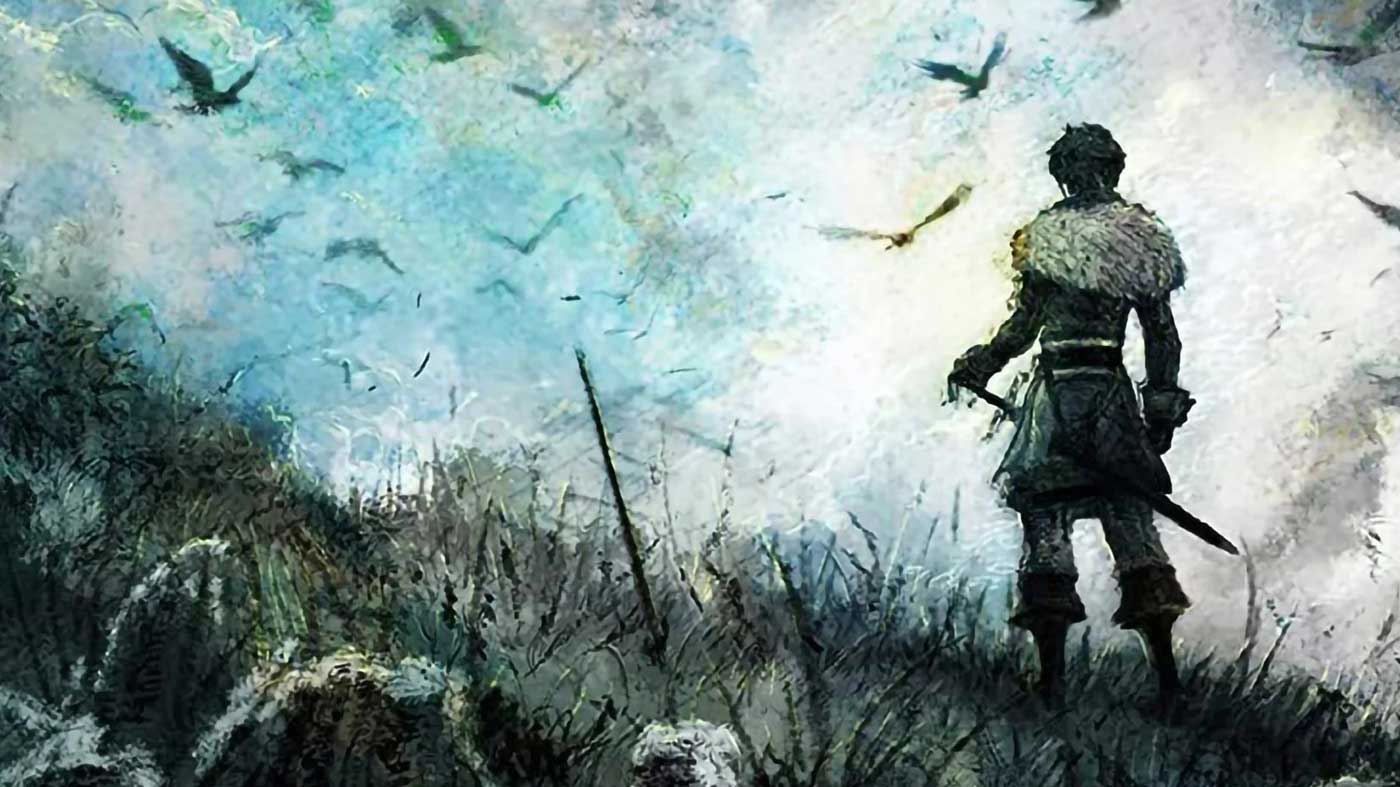Press Start may receive a commission when you buy from links on our site at no extra cost to you.
Much like Octopath Traveler before it, Triangle Strategy started out as a silly sounding codename that just ended up sticking, and even after playing all the way through it still strikes me as a strange name. Is it about the chain of strengths and weaknesses of unit types? Maybe it’s referring to the three powers vying for control of the land? It could be many things, but of one thing I am certain. Regardless of what the triangle is, Triangle Strategy is an utterly compelling strategy RPG that manages to toe the line between challenging and approachable in a way that made it hard to put down.
Triangle Strategy places you into the furred jacket of Serenoa Wolffort, heir to House Wolffort and loyal ally to the kingdom of Glenbrook. Glenbrook is one of the three kingdoms in the greater land of Norzelia in a time of seemingly lasting peace – but as you might guess, the peace in this realm is not a lasting one.
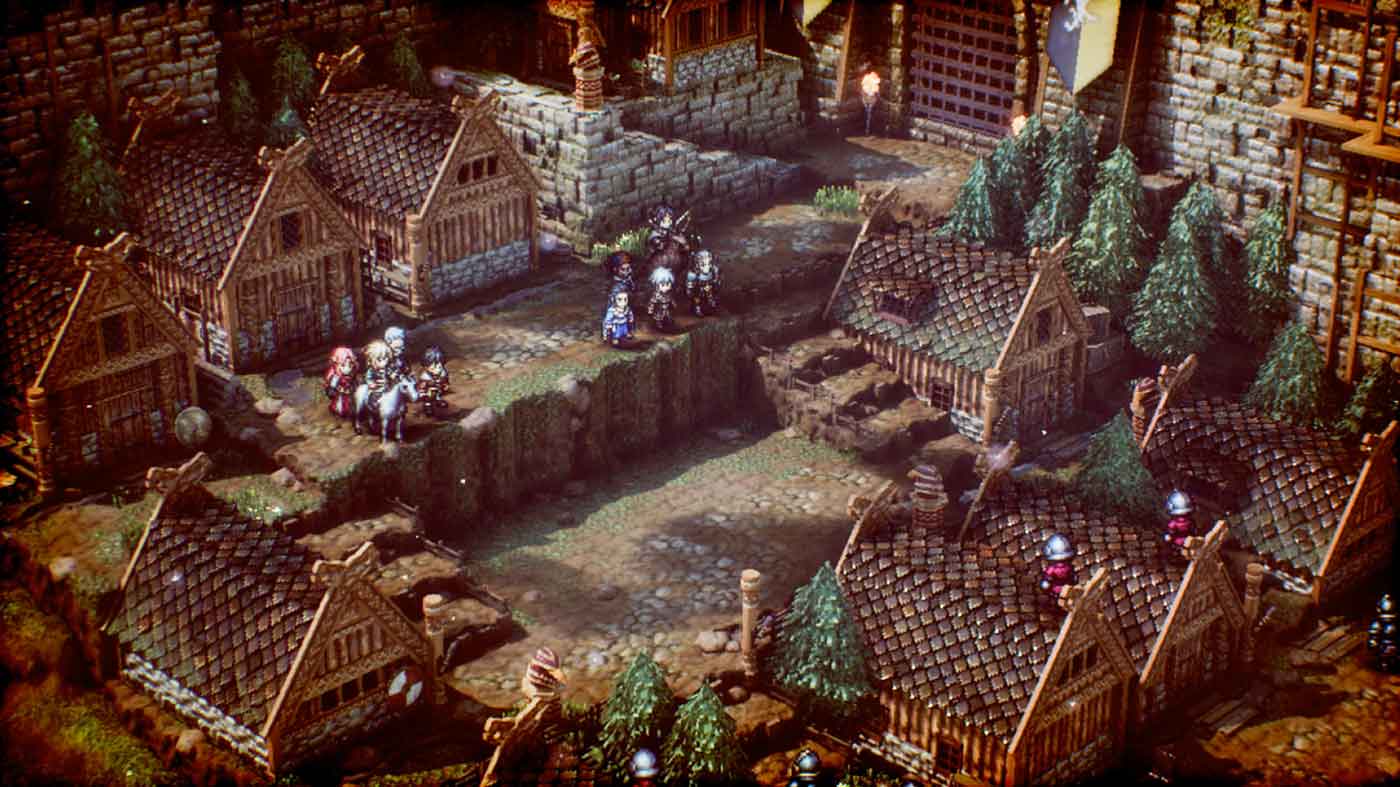
When the fight begins, Triangle Strategy places you in direct command of your chosen group of combatants, placed onto an isometric grid-based combat area, tasked to outwit and outlast the opponent in pursuit of victory. Triangle’s battle system is eminently approachable, but can be deceptively deep. The rules of this system are many but easy to understand. You’ll need to contend with attack directions, weather conditions, terrain effects and the like – complexity comes when all of these rules are mashed together in combat situations. While playing you will gradually learn about weaknesses in your strategy through momentary mistakes or sometimes full-on defeats, but I never felt that Triangle Strategy crossed the line into punishing territory.
There is no permanent death for characters for one, they simply retreat from battle ready for the next. Even a total loss is a gain of sorts since any experience your characters earned in the battle remains for your next attempt. More often than not, between retrying battles with slightly stronger characters and adjusting my strategy based on my experience with how it went last time I never found myself feeling overwhelmed by a challenge that felt insurmountable. It’s a fantastic balance that leaves room for demanding tactical challenge, while making each attempt naturally a little easier than the last without doing anything as crude as suggesting you turn the difficulty down. It’s a super smart balancing system that made triumph feel like it’s own reward. That said, there are difficulty modes you can choose from at the beginning of the adventure, and are free to change throughout the game without consequence if you want to tailor your starting point.
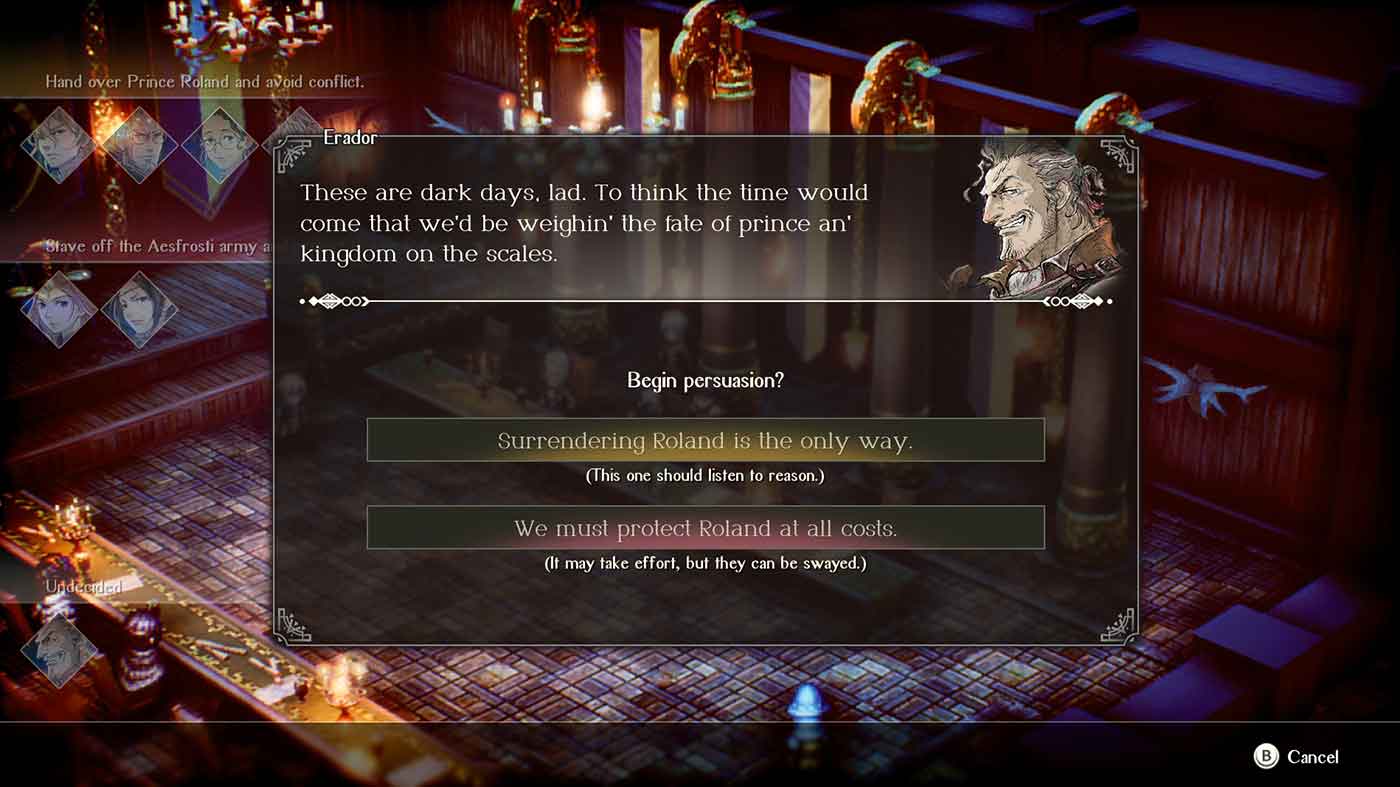
The cast of characters fighting alongside you and existing in the world around you are worthy of note. Each feels fleshed out with their own motives and personalities, their own deeply held convictions about what they want to do for themselves and the people that matter to them. They have each had their own experiences of the world and their own pre-existing relationships. It feels like my character’s story is taking place in a fully realised world, alongside people with deeply felt justifications for their convictions.
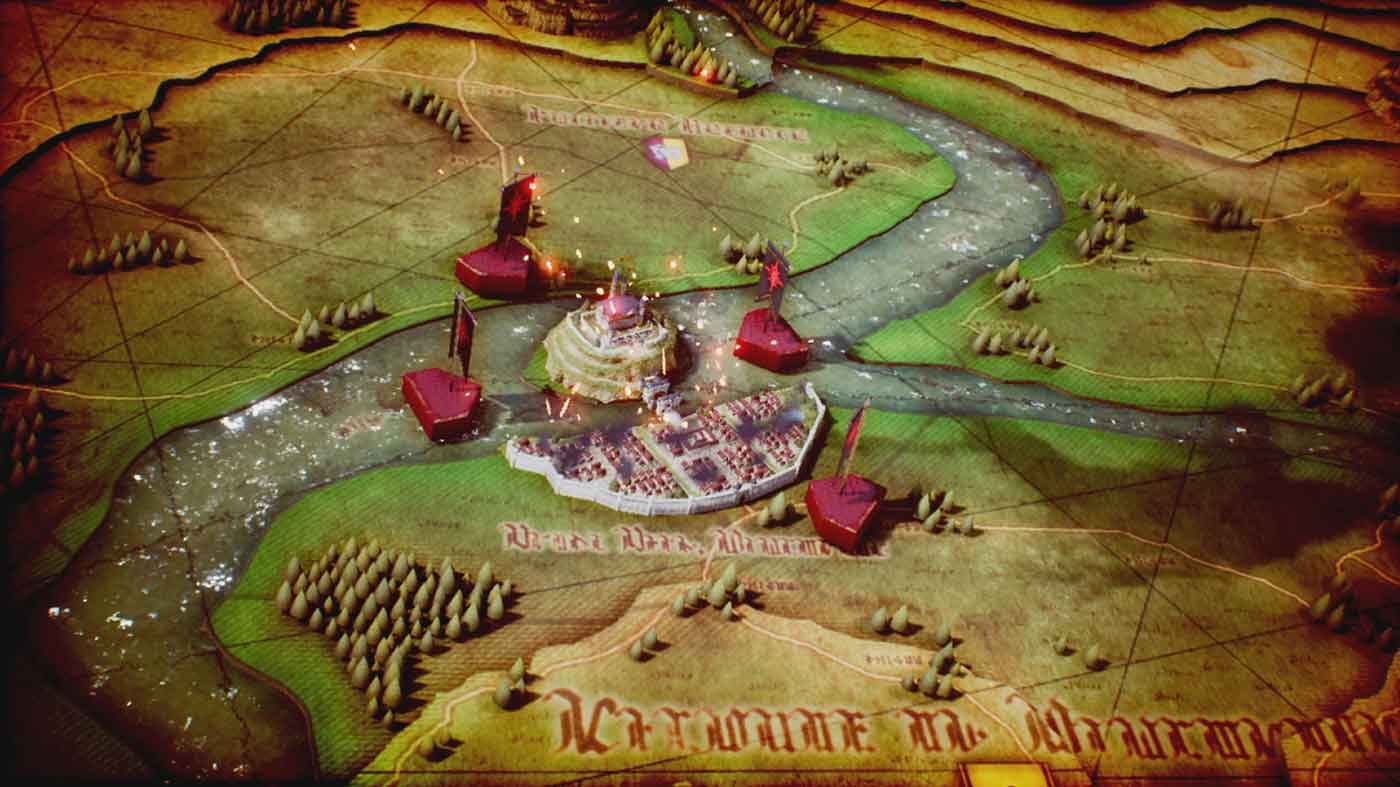
The path Triangle’s story takes is largely directed by decisions made by not only you, but your group as a whole. House Wolffort is staunchly democratic which leads to one of the most interesting aspects of Triangle Strategy – all major decisions made by your group are made by majority vote. You as a player cannot directly decide the direction your house will take, but when a major decision needs to be made you are given an opportunity to gather information and talk with your companions to attempt to convince them to see things the way you do. You have no guarantee that they will come around to your perspective, and it will entirely depend on whether you make an argument that is convincing to them in particular. It all cumulates in a vote where your group’s future will be decided.
I found this decision making process utterly captivating. Most of the decisions you need to collectively make will be difficult – there are rarely easy answers here. You will have to wrangle with yours and your group’s existing allegiances, consider risky proposals, and even your own personal convictions to arrive at a decision. At times characters even convinced me to change my mind after I tried to change theirs, presenting a new viewpoint I hadn’t properly considered until then. The process of gathering information beforehand and making an argument feels almost like a lite version of an investigative visual novel, and made an already engaging story full of unexpected twists and turns feel even more personal. This story can go off in wildly different directions based on your collective decisions. Having to think carefully and fight to convince your group of your viewpoint made the voting process nerve racking and the outcome genuinely impactful.
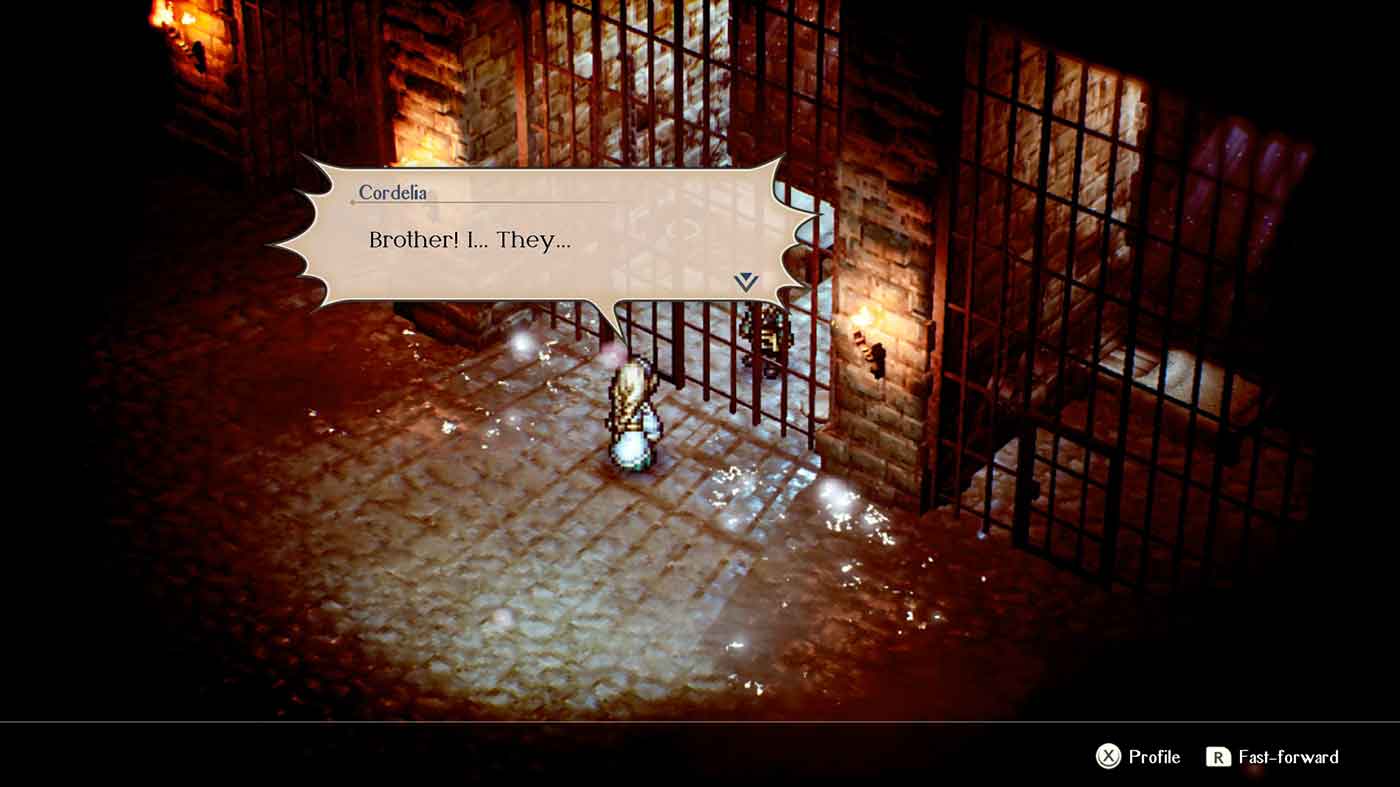
This story of kingdoms in turmoil unfolds against a striking visual backdrop. Utilising the same 2D-HD style as Octopath Traveler before it, Triangle Strategy is both an homage to past strategy RPGs and a contemporary technical showpiece. Battle situations are easy to read at a glance owing to the simple look while effects like lighting and depth of field make the game look unmistakably modern. The only drawback I found visually was what seemed like a particularly aggressive resolution scaling system, which during relatively static story scenes could give the sharp edged characters and environment textures a strange scaling look which can be a bit distracting if you notice. Triangle’s music is worth mentioning as well. Like the visuals it toes a line between resembling music from RPGs of another era while sounding beautifully contemporary with it’s instrumentation.

